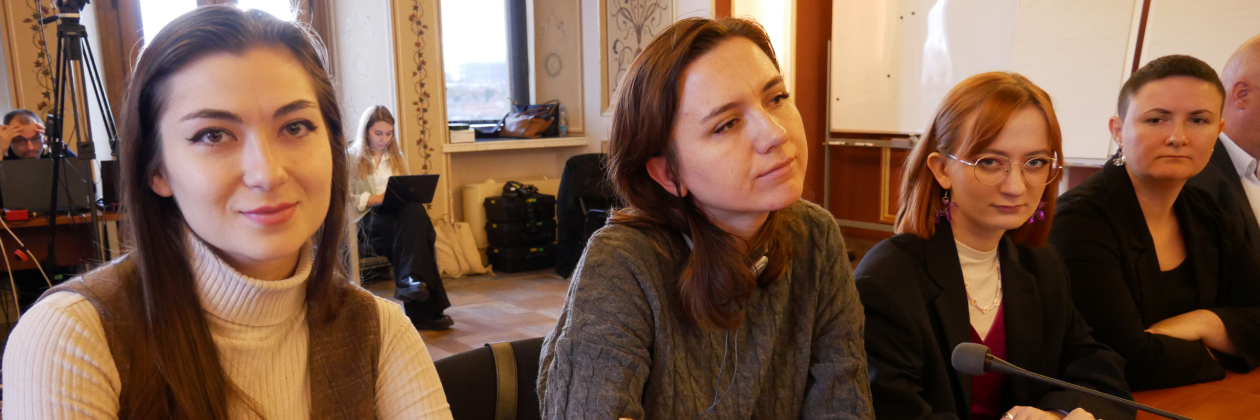
How Women in Ukraine are Advocating for More Inclusion in Journalism
When Olha Sytnik served as an editor at a Ukrainian media outlet, her male colleagues often challenged her knowledge of military operations when she began reporting on combat in Ukraine, beginning with Russia’s annexation of Crimea in 2014. But she began to question their perspectives, not seeing issues that women and families face on the front page.
“Editors lack understanding of social topics, when [many of them] have not created their own family yet,” Olha, a mother and a journalist, said. “Like when kindergartens shut down, and people have no income....it means that mothers can’t go to work, and if they work remotely, then of course, her performance would depend on her children [at home].”
Women and children are tremendously impacted by the war in Ukraine. According to UNICEF, 1.5 million children are at risk of depression, anxiety, and post-traumatic stress disorder, and 5.2 million women are likely to deal with negative mental health effects as they are the primary caretakers of their families. Over 20 percent of Ukrainian families are now in poverty, with many either internally displaced or living in another country as a refugee.
Since becoming a working mother, these issues have guided Olha’s reporting during the war. She said she doesn’t know many men who would raise the question of how maternity centers work during wartime, or how the quality of education is impacted if a school doubles as a bomb shelter.
“[We see] women’s job to be in the rear and to provide backup support, but it seems to me, women are the ones who pay attention more to social topics because they are faced with these issues,” she said.
Julia Tkachuk, a journalist in Ukraine who reports on music and entertainment, said that women journalists are often underestimated, thus the media is void of these perspectives. In her own experience, at times, she’s been backbenched because of men who believe they are smarter and better writers.
When she traveled to Prague with Olha, both winners of the annual journalist competition The Honor of Profession for their pieces about women’s rights, to meet with representatives of local media and civil society organizations from around Europe, she was surprised to learn that women journalists face these issues worldwide.
“It was a discovery that the problems remain the same regardless of what country it is,” Julia said. “But the solutions may be different.”
Olha said exchanging career experiences and lessons on gender-sensitive reporting with peers made her feel less alone. While she still writes as a freelancer, she left her journalism job for better benefits as a communications professional. She said she always viewed the world outside Ukraine as perfect but now realizes that there is still work to be done to achieve gender equality globally.
“When you have been writing about gender inequality in your country for many years, it seems that Ukraine has the biggest problems,” Olha said. “In some ways, we are behind, but we have also managed to overcome some challenges, and we are moving forward.”
The study trip is a part of IFES’ broader efforts aimed at supporting gender-sensitive journalism and fostering the exchange of good practices with international peers. The initiative was made possible with financial support from Global Affairs Canada under Ensuring Meaningful Engagement through Reforms for Gender Equality Program.
This was originally published by IFES Ukraine. Visit the original link here.









